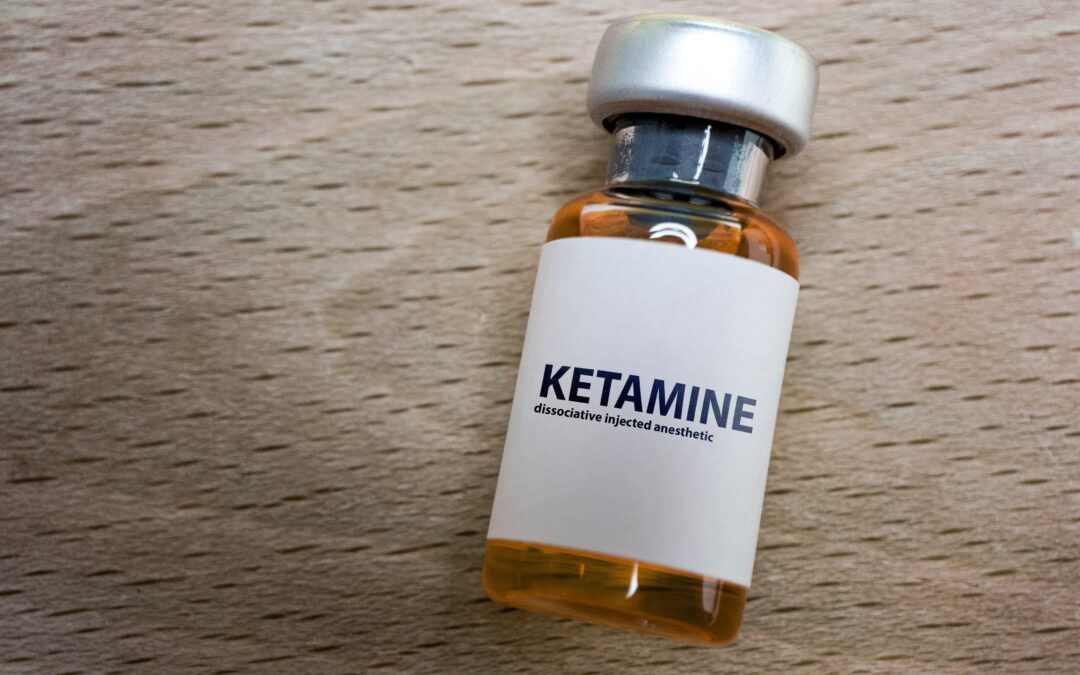Drug and alcohol use is dangerous on all accounts. Still, combining ketamine and alcohol can lead to an increasing risk of developing urinary tract issues, memory loss, slowed breathing, coma, and death. Overdose symptoms from combining these substances include unconsciousness, slowed heart rate, impaired motor functions, vomiting, and clammy skin.
Immediate medical attention may save the user from coma or death. Over-intoxication is likely when using these substances together when ketamine induces the same effects as alcohol when causing dysfunction with the neurotransmitter in brain chemistry.
The Dangers of Ketamine
Ketamine presents numerous treatment opportunities when properly administered for its anesthetic properties for medical procedures and chronic pain.
However, illicit ketamine in powder or liquid for recreational use can be cut with other drugs, including methamphetamine, amphetamine, MDMA, and cocaine.
Why People Become Addicted
The user may feel the effects of the drug quickly, within a few minutes, and begin experiencing distortions in sights, sounds, and feelings of disconnection from reality. Finally, hallucinations may occur and continue for up to an hour. Misuse and abuse of prescription drugs can result in addiction, needing professional medical detox to recover from.
Other symptoms of ketamine use include:
- Feelings of being out of body (referred to as the K-hole)
- Agitation
- Cognitive disability
- Amnesia
- Loss of consciousness
- Involuntary rapid eye-movements
- Dilated pupils
- Muscle stiffness
Mixing Ketamine and Alcohol
Ketamine and alcohol affect different neurotransmitters in the brain chemistry. Ketamine amplifies the effects of the combining alcohol use, causing over-intoxication. Alcohol also depresses the central nervous system, causing slowed breathing and heart rate, coma, and death.
Polydrug use involving ketamine and alcohol can have adverse results, such as overdose. Because of ketamine’s effect on brain chemistry, it is difficult to judge how much of the substance is being taken. Finally, bladder and gastrointestinal problems are common when ketamine and alcohol are regularly in use.
How Does Ketamine and Alcohol Impact the Body?
Ketamine is a sedative, and mixing it with alcohol, which is a central nervous system depressant, is dangerous, even in small amounts. Both substances affect brain chemistry, causing deficits in thinking processes and memory. The adverse physical effects point to depressed breathing, which can result in death if breathing stops.
Shallow breathing can also progress into a severe situation if vomiting and choking occur. The dangerous combination of ketamine and alcohol can also cause detrimental heart issues, such as palpitations, high blood pressure, chest pain, and fast heartbeat.
On a long-term basis, mixing these 2 substances can also lead to chronic bladder and kidney damage. Mental health concerns that can develop include anxiety and depression. Overall, mixing ketamine and alcohol is a dangerous habit to develop.
Alcohol’s Effect On the Central Nervous System
Excessive alcohol use or an alcohol use disorder can affect all the organs in the body. According to The Centers for Disease Control, alcohol is a central nervous depressant, which is quickly absorbed from the stomach and small intestine into the bloodstream.
The liver can only process a small amount of alcohol at a time, so the alcohol circulates throughout the body, affecting all body systems. The central nervous system is responsible for lung and heart functions, which can be adversely affected by excessive alcohol consumption.
Ketamine’s Effects
Individual effects of ketamine use are unpredictable and can range in intensity depending on the amount of the drug in use. Acute effects can extend for several hours or several days. The drug acts quickly, and the effects occur within minutes.
Low doses of ketamine can induce the following symptoms:
- Confusion, disorientation, and, in some cases, loss of motor coordination
- Dizziness, nausea or vomiting
- Increase in blood pressure, heart rate, body temperature, and breathing
- Changes in sensory perceptions, including hallucinations (visual or auditory)
- Feelings of detachment from one’s body, surroundings, or environment
Short-Term Effects
Short-term effects of higher dosages can include the following symptoms:
- Experimentation with using a combination of other drugs, which is very dangerous
- Taken with other central nervous depressants and result in respiratory depression, distress, and death
- Tolerance, dependence, and addiction
Long-Term Effects
Long-term abuse of ketamine can result in the development of ketamine withdrawal syndrome if doses are missed or smaller than usual. Ketamine withdrawal syndrome can induce depression, excessive sleepiness, and drug cravings.
Brain structure, memory impairment, and emotional and cognitive changes can be affected. Physical effects can be severe damage to bladder and kidney functions with ketamine and alcohol abuse.
Ketamine Addiction and Withdrawal
Treatment for ketamine addiction can be successful, beginning with a professional medical detox program. Drug cravings, feelings of depression, and excessive sleepiness are withdrawal symptoms of this addiction.
Therapy options begin medication-assisted treatment when necessary to relieve discomfort and symptoms. Additionally, further therapy, such as cognitive-behavioral therapy, helps develop new coping mechanisms.
Alcohol Withdrawal
Alcohol withdrawal can be intense and dangerous and requires close medical supervision throughout detox. Alcohol detox is among the most challenging detox situations, but it can be safe when treatment professionals closely monitor the client.
Delirium tremens is a severe side effect of alcohol withdrawal that professional medical staff can recognize and treat. Thus, MAT is another beneficial option for alcohol withdrawal symptoms.
Get Ketamine and Alcohol Treatment in Tennessee
The use of ketamine and alcohol can be life-threatening, but seeking help today can end the possibility of overdose. However, Detox West Tennessee offers professional detox options for safe and medically monitored alcohol and prescription drug detox. Begin your journey in sobriety and leave the worries of overdose behind.
Contact Detox West Tennessee today to understand the admissions process and start detox.


